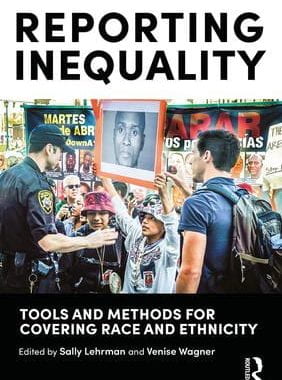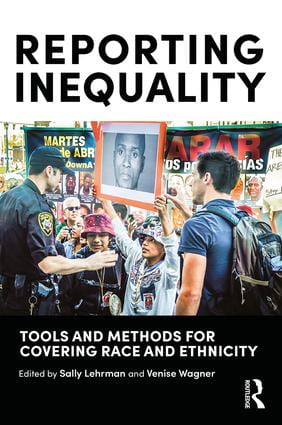It’s About Time: How Perceptions of Time Influence Environmental Action
SJWG Rapporteur Report
7 October 2015
Rapporteur Report by Carolyn Branecky & Samuael Topiary
The Panel Discussion
At this Science & Justice Training Program event, Zoey Kroll, Adina Payton, and Elida Erickson
discussed how different perceptions of time influence the ways they communicate anthropogenic climate
change to broader publics and the implications of this communication for political action. Carolyn and
Topiary moderated a discussion with the three panelists, followed by a question and answer discussion
with the audience. By focusing on the timescales that define each of the panelists’ efforts, we explored
some of the possibilities as well as the limitations on both communication and action which face the
environmental movement today.
The panel began with a presentation by Zoey Kroll, who provocatively suggested that ten seconds
was the timeframe she is most guided by in her work as the Internet Communications Coordinator at the
San Francisco Department of the Environment (SFDE). In suggesting that she has about ten seconds to
capture the attention of the average visitor to the SFDE website, Kroll stated that her work was defined by
her ability to communicate quickly and simply. Thus, she sees quickness as essential to working on the
long-term goals of municipal transformation. The SFDE provides easy to understand guidelines for
recycling and composting to help SF city dwellers and businesses to implement new city ordinances, such
as the plastic bag ban.
Dr. Adina Paytan, UCSC Earth and Planetary Sciences Research Professor, focused on the
techniques she uses to communicate the impact of human activities on the ocean environment. She
explained how her research spans a wide range of temporal scales, observing natural processes that occur
in one season to environmental change that evolves over millions of years with spatial scales that range
from the molecular to the global. Although her work explores these multitudes, she explained how she
relies upon human lifespans to communicate the gravity and relevancy of her data. Using the benchmarks
of generations within her own family, she plots the changes in ocean acidification levels, noting the wide
change between the years when she was born and when her daughter was born. Using these personal
markers in her research data graphs, Paytan suggests that in talking about long-term issues, she finds it
essential to put her data into the perspective of a human generation, stating that a 100-year lifespan is
about as much as people can really understand in terms of rates of change.
Elida Erickson, Sustainability Programs Manager and Interim Director at UCSC’s Office of
Sustainability, focused on institutional timescales at the university, stating that the Office of Sustainability was established seven years ago by students, focusing on the problems of food waste. She discussed the ways that timescales for environmental action can differ among the groups that she works with. On the one hand, college students want to see change happen within their 4-year term at the university and have been successful in some cases at catalyzing that change within their time here. Yet, from the administrative side, sometimes institutional policies, such as building permits in the case of one student project, can defer or prevent the implementation of creative solutions. In drawing a distinction between student timeframes and administrative timeframes, Erickson raised the issue of how working with committees has its own kind of timeframe and challenges, and suggested that working with administrators was the least fun part of her job. She also noted that the ambition and perspective of students wanting to achieve environmental goals on a student timeframe can help to push the administration to move faster than they might otherwise to implement environmental policy changes.
Conversation Following the Presentations
Both UCSC and the City of San Francisco have Zero Waste programs, whose shared goal is to
eliminate (in some sense of the word) waste by a given date. Kroll, representing the City of San
Francisco, and Erickson, representing UCSC’s Office of Sustainability compared the implementation of
these Zero Waste programs in a compelling way. Both of these speakers discussed the role which politics
plays in their work as well as the need to navigate institutional positions when strategizing on
communicating environmental action. Kroll suggested that she tends to think and work from a citizen
point of view, rather than from a City government's administrative perspective. Erickson suggested there
was a difficulty with fast change, suggesting that UC-wide initiatives, such as Zero Waste, which are
mandated from the top down, often leave people in the middle having to adjust.For example, UCSC is
“crawling” on a campus-wide composting due to the undesirability of a bin next to offices. She suggested
that while the voice of students can push the administration to be more responsive, it can also be pushed
aside more readily. Kroll suggested that in San Francisco, the idea of Zero Waste 2020 produces
excitement and creates a sense of a goal for people to work toward. She notes that to date, San Francisco
has achieved an 80% diversion rate and that 10% of the outlying waste has to be addressed with producer
responsibility laws.
The panel discussed the difference between achievable goals and “impossible” or aspirational
goals, such as Zero Waste, and mused about the ways in which achievable goals helps to foster personal
action, while “impossible” goals can be useful to galvanize a larger community movement. This line of
thinking was interrogated by Anthropology PhD candidate Kristin Lawson, who questioned the role of
time in relationship to differences between institutional and individual action. Kroll responded that
institutions and municipalities can affect change at the procurement level and spoke about the high
purchasing standards held by the City of San Francisco, which publishes a directory for approved sources,
which in turn, provides a pathway for industry to move in this direction. Kroll also discussed the way that
her personal experience of working on a collective urban farming project with a 2-5 year timeframe
demonstrated how working toward specific goals can head off a sense of numbness and disempowerment
that comes from doom and gloom climate change predictions. She added that, in San Francisco, one
hears is a lot of talk about “disruption” as a solution and she wonders if the feeling of urgency (about
climate change) must be combined with the experiences that help one feel one’s actions are making a
difference. Kroll focuses on how to make her work be as accessible and inclusive as possible.
Paytan picked up on the issue of “doom and gloom,” stating that she feels scientists need to be
more solution-oriented when communicating the negative consequences of their research, such as rapid
climate change, species extinction, and environmental destruction. Dr. Karen Barad (UCSC Feminist
Studies) pushed Paytan on the ways in which scientists communicate their work using standard notions of
time, questioning “the seduction of clock time” and its tie to capitalism. Barad wondered about the
temporality of urgency and its relationship to doom, questioning whether there might be a way to discuss
urgent time, which is not tied to doom, but rather allows the past and the future to carry more meaning.
Paytan countered that, although we receive distressing data about climate change, our planet has been
around for four billion years and has been through other huge changes, stating that she personally finds
comfort in knowing that we humans are not going to be here forever. Barad countered that she is not
comforted by how this kind of philosophical nihilism is often taken up politically, especially considering
the unevenness of how the planet is being damaged and by whom. She noted that scientists often have
lively alternative conceptions of time and can think about temporality more richly when our hands are not
tied to “clock time.” Barad continued by suggesting that although something like sea-level rise happens
at a certain rate within a fixed frame, the consequences of that rise are experienced very differently by the
people living in rich countries than in poor ones and wondered whether these effects should be put in
words of time or social equality.
Towards the end of the panel discussion, PhD student Ella Ben-Hagai raised the question of
whether zero waste goals were paradoxical to the push for economic development and expansion in both
San Francisco and at UCSC. She also provocatively wondered whether the zero waste programs were
causing these two enclaves to become islands of “sustainability” and created zones of privilege or
whether there was some notion of zero waste mandates as being more “trickle down” kinds of strategies
for other places.
The panel discussion concluded with a question about the politics behind scientific research and
an acknowledgment of the importance of having interdisciplinary conversations between scientists, social
scientists and humanists and which include voices and experiences from both inside and outside of the
academy, in helping to further discussions about environmental action and in order to build new alliances
to build a progressive agenda.
Post-panel Discussion Reflections
Following this panel discussion, we received written comments from our panelists reflecting on moments
that stuck out to them. The following quotes come from this written feedback:
Kroll:
“It was interesting to hear candid words from Elida about what it's like to work within a
university context, ... how terms are defined or redefined as campaigns evolve (Can Zero Waste
really mean 95% waste diversion?). The role of the Science and Justice Program in bringing
together a dynamic audience and panel cannot be understated.
Paytan:
“Having social scientists, humanists and physical scientists on the panel contributed to a
fascinating exchange of ideas. As a scientist and particularly a geologist I tend to define time as a
precise measurement related to the rates of rotation of planetary bodies (the Earth and the Moon)
and it was very interesting and educating for me to hear how others regard time in a much more
subjective manner and that time could be by personal and even societal experiences. I also
learned a lot about the challenges people have when they have to communicate timelines to a
broad community and accomplish set goals, both the campus sustainability goals and the City of
SF environmental Stewardship (0-50-100 roots) goals are impressive!”


